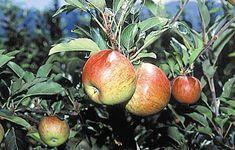
The southern hemisphere top fruit season is due to kick off over the next few weeks, according to John Hopkins from Capespan UK, and importers can look forward to a market of mixed fortunes.
Green South African pear varieties have enjoyed good growing conditions to date, with excellent spells of weather helping fruit achieve a high brix level, he said.
However, a large overhang of European stock, particularly of Belgian Conference and Comice pears, means the market for southern hemisphere product is currently sluggish. “Northern hemisphere pears are more popular in the UK, so this is not good news for southern hemisphere exporters,” Hopkins said. “However, the market should pick up with Packham pears, especially from Chile, at the end of March or start of April.”
Early blush pears from South Africa are currently in short supply because of a heatwave during production which prevented good coloration, according to Mr Hopkins, but the market price in the UK is currently high.
“However, we will have much higher volumes of later blush varieties, which enjoy huge demand in the UK due to their eating quality, and are expecting a 10-15 per cent market growth for these fruits in 2007,” Hopkins said.
The upcoming southern hemisphere apple season is also set to bear fruit in 2007, Hopkins said. South Africa’s Royal Gala fruits are small in size this season, and early fruit has low coloration because of the heatwave. “However, a cold front has helped later fruit flourish, and we are also expecting a good crop with large sizes from Chile and an average Brazilian crop.” A 25 per cent slump in volumes of French Royal Gala means southern hemisphere product is due to arrive on to a strengthening UK market with values as high as last year.
“Granny Smiths will enjoy a strong start in April this year, also due to decreased French stocks. The crop promises average supply,” continued Hopkins. “South Africa’s Golden Delicious crop has been affected by hail and sun blush, so the market will be tight and retail programmes maximised.”
Whilst Pink Lady supplies from South Africa are short, also due to hail damage, Chile promises a good crop. “The UK market for this variety is growing 15 per cent year on year,” Hopkins said. “The question this year is whether there will be enough fruit to fulfil demand in all the retail outlets, and this will not become evident until August or September.”
Capespan is also preparing to import some 600,000 cartons of Chinese Fuji apples each year, according to Hopkins, an enormous increase from 2006. “We have carved out a niche space for this in the UK, where it as treated as a premium product and now holds 2.5 per cent of the UK apple market, a 25 per cent year-on-year increase.”



